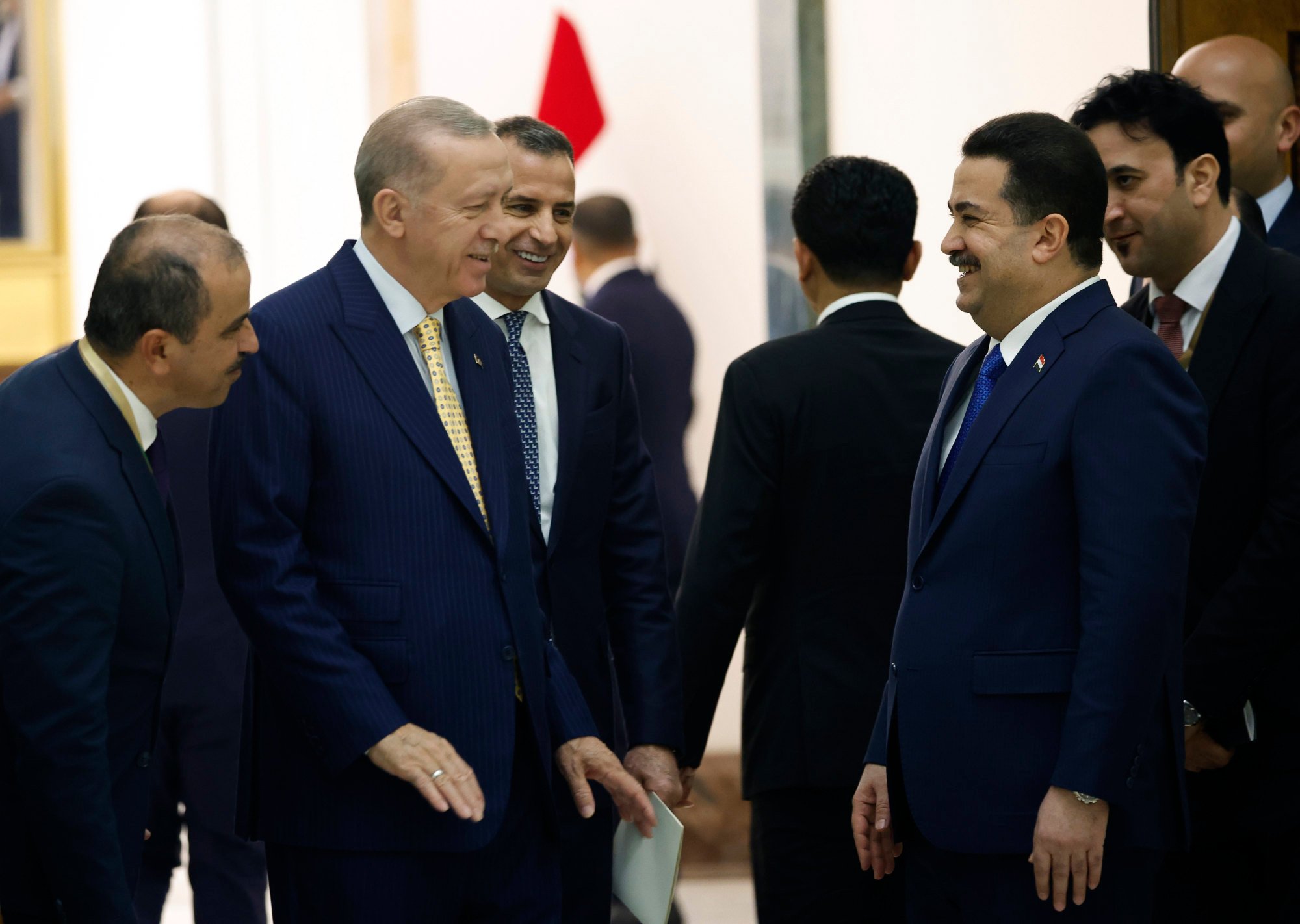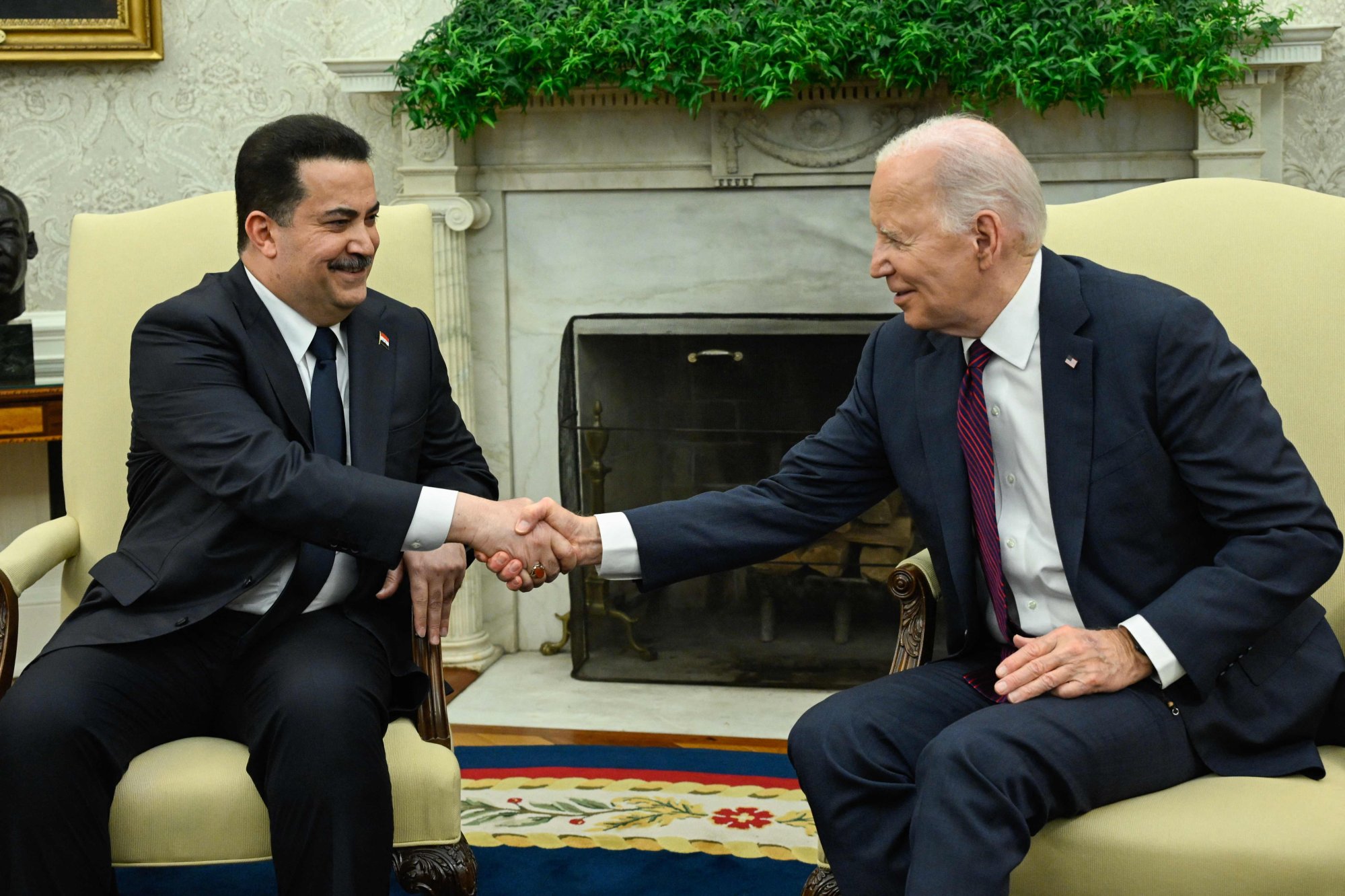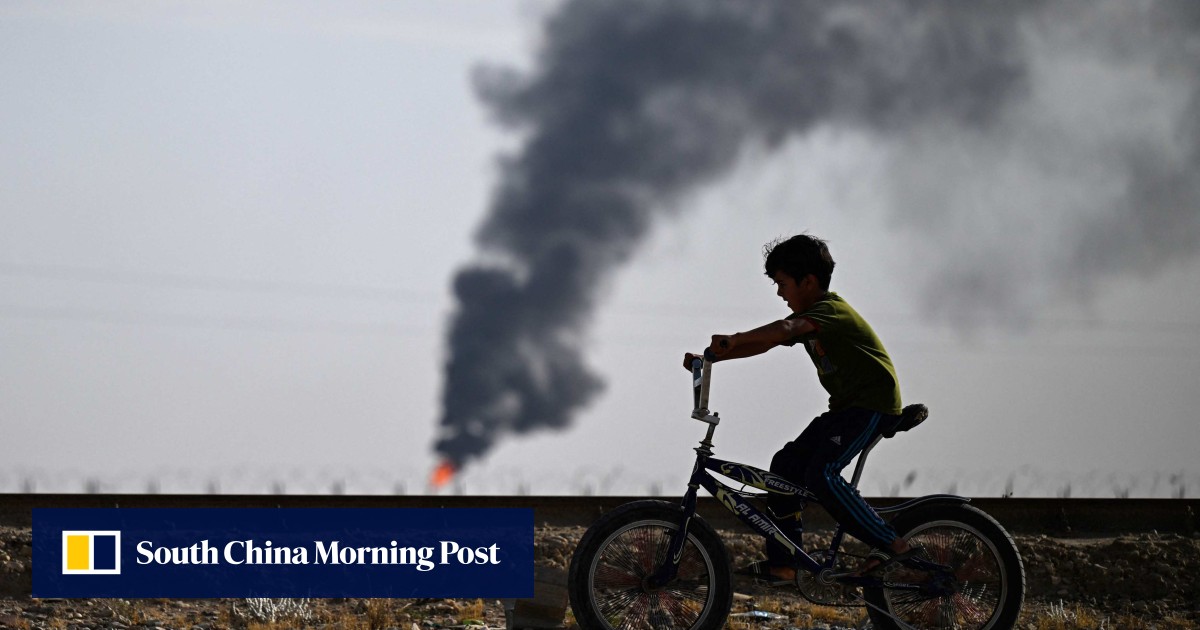But the Israel-Gaza war has put the connectivity of the corridor’s eastern Mediterranean leg into “sharp question”, said Kristian Coates Ulrichsen, Middle East fellow at Rice University’s Baker Institute for Public Policy in the US.
Closing ranks
The success of the Iraq Development Road also depends on a marked improvement in Iraq-Turkey ties, which have been “fraught for the past decade”, said Rich Outzen, a former senior policymaker at the Pentagon and the US State Department.
An international legal battle over pipeline oil export from Iraq’s autonomous Kurdish region to Turkey has eroded ties. The two countries have also “bickered” over Turkish military operations against Kurdistan Workers’ Party militants on Iraqi soil, Outzen said in a research paper published last Thursday by the Atlantic Centre, a Washington think tank.
The preliminary agreement for the Iraq Development Road was signed late last month during Turkish President Recep Tayyip Erdogan’s first visit to Iraq in 12 years.

Other deals struck during Erdogan’s trip included Abu Dhabi-based AD Ports’ development of cargo-handling facilities and an economic free zone at Iraq’s new al-Faw Grand Port.
The first five jetties of the port are set to be completed later this year by South Korea’s Daewoo E&C under a January 2021 contract worth US$2.62 billion.
From al-Faw, the Iraq Development Road would run 1,200km (746 miles) north to the border with Turkey.
Baghdad estimates the project could generate US$4 billion in annual revenue and create more than 100,000 jobs.
Chinese energy firms have large footprints in Iraq, with investments of some US$20 billion in oil production and power generation ventures over the last 15 years.
To date, Beijing has not indicated if it plans to become a partner in the Iraq Development Road.
Odd bedfellows
Saddam Hussein’s regime waged a nine-year war with Iran in the 1980s and invaded Kuwait in 1990 before Iraqi forces were expelled by a multinational coalition.
Iraq endured tough economic sanctions until Hussein was overthrown by a US-led invasion in 2003, but it subsequently became embroiled in an insurgency against the American occupation and a terrorist campaign mounted by al-Qaeda’s Iraqi affiliate.
After being defeated by US forces in 2007, the group re-emerged as Islamic State and by 2014 established a caliphate which at its peak comprised 40 per cent of Iraq’s territory.
Isis lost all of territory in Iraq by 2017 after military operations that brought together odd bedfellows including the US and Iranian forces allied with Iraq’s Popular Mobilisation Forces, a state-backed umbrella group of mostly Shia Muslim armed groups that fought US forces during the insurgency.
The Popular Mobilisation Forces is now represented in Iraq’s parliament by the al-Fatah Alliance, which is part of the ruling coalition government led by Prime Minister Mohammed Shia al-Sudani, and has pressured him to end American military presence.

The US ended combat operations in Iraq in December 2021, but some 2,500 troops remain there to advise and assist the Iraqi military against Isis.
Al-Sudani hopes the development road will spark the reconstruction of Iraq”s economy after 40 years of conflict.
The preliminary agreement for the Iraq Development Road came shortly after al-Sudani became the first Iraqi leader to visit the US since the 2003 invasion, with analysts saying Washington had encouraged Gulf monarchies to back the project.
“It is in the US interest that Iraq develops the economic and political stability that has long been denied it in the post-Saddam era,” Ulrichsen said.
Iraq’s Gulf Arab neighbours started to show interest in investing in Iraq a few years ago, amid a wider shift in the Middle East’s geopolitics towards diplomatic rapprochement promoted by uncertainty about the US’ commitment to the region.
The UAE emerged as a first-mover in Iraq by announcing plans to invest US$3 billion in reconstruction and other projects in 2021.
Qatar in April last year acquired a 25 cent stake in a US$27 billion project to capture and market Iraq’s gas. This project will boost Qatar’s standing as one of the world’s leading gas exporters.
Iraq does not have the capability to capture this “associated” gas and relies on pipeline imports from Iran to meet 33-40 per cent of its demand.
The gas capture venture, which is led by France’s TotalEnergies, is key to plans to reduce dependency on Iran and turn gas into a major foreign exchange earner for Iraq.
Plans for the Iraq Development Road include the export of Iraqi gas to Turkey, and onwards to Europe, by a pipeline along the road.
But the road project could meet resistance from Iran that could be “sidelined economically” or view the road as a threat to its influence in Iraq and the region, said Yerevan Saeed, director of the Global Kurdish Initiative at American University in Washington.
Tehran could suffer considerable losses from the Iraq Development Road project, especially if the gas projects succeed, because it would lose gas markets in both Iraq and Turkey, he said.

